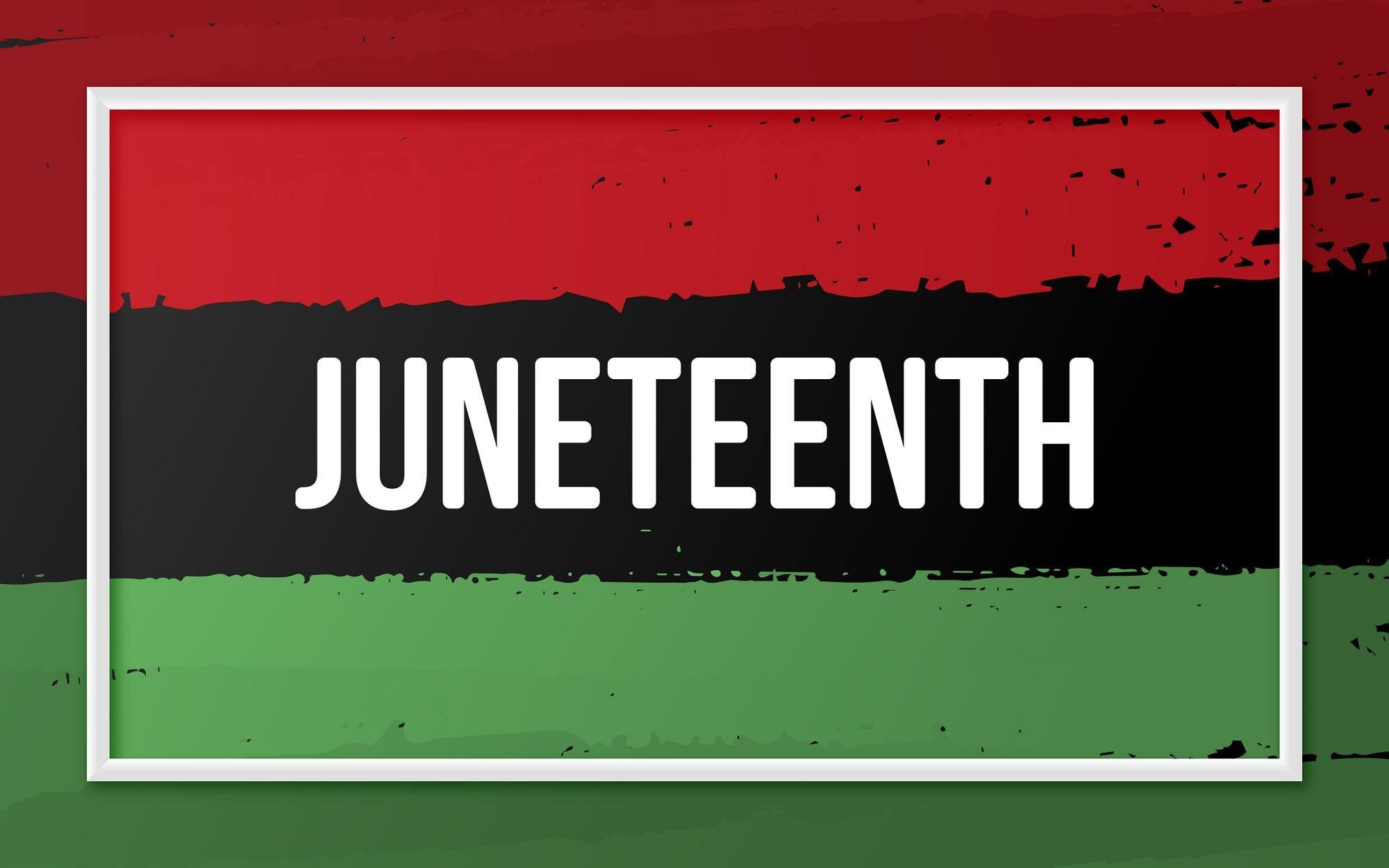Juneteenth: Slavery Finally Ended
IMAGE: The Daily Meal
The following is a collective effort by The Fem Word Contributors Meera Dahiya, Saira Rathod, Quinn Terry, Laura Hennawi, Saisha Kapoor, Olivia Eisenberg, Charlotte Cook, Emily Montague, and Monika Samtani
On June 19, 1865, federal troops arrived in Galveston, Texas and informed enslaved African Americans of their emancipation. Their arrival came more than two years after President Lincoln signed the Emancipation Proclamation.
On June 17, 2021, Juneteenth officially became a federal holiday.
Juneteenth is celebrated across the United States with prayer and religious services, speeches, educational events, family gatherings, picnics, and festivals with food, music, and dancing. The day is used to recognize the end of slavery, as well as to celebrate African American culture and achievements.
To really understand the history of enslaved people in the U.S., The Fem Word team takes a look at the beginnings of American slavery and what the iconic civil rights activist Opal Lee - and 2022 Nobel Peace Prize nominee - did in 2016 to make Juneteenth a national holiday.
beginnings of transatlantic slavery
While African slavery first began in 1619 in British controlled colonies, the origins of slavery in the North America started far earlier. In 1513, Juan Garrido became the first documented enslaved Black person to arrive in what is now St. Augustine, Florida, on an expedition with Juan Ponce de Leon. The Spanish transported more enslaved Africans to the same area in 1565. Then, in 1619, twenty enslaved Africans were brought to the British colony of Virginia. Nikole Hannah-Jones’ 1619 Project was launched in 2019 on the 400th anniversary of this event. The later 2021 publication works to unpack and critically assess misunderstandings of and misinformation around enslavement in the country.
illegal slave trade
In 1807, the U.S. Congress passed the Congressional Ban on Importing Slaves, banning the involvement of the United States in the slave trade. However, American operations within the transatlantic slave trade continued. U.S. shipbrokers based in Brazil and Cuba allowed the coffee and tobacco industries to continue importing enslaved African people to fulfill labor demands. Companies and officials based in New York helped foreign allies continue the slave trade into the 1860s. In spite of the North being known as “abolitionist,” many cities in this region were heavily involved in the slave trade, including New York and New England.
The official Juneteenth flag.
The flag, created in 1997 by activist Ben Haith, founder of the National Juneteenth Celebration Foundation, and Boston-based illustrator Lisa Jeanne Graf, morphed into the current version.
The symbols on the flag represent important elements of Juneteenth:
The date, June 19, 1865, refers to the day when enslaved African Americans learned of their emancipation.
The star represents Texas, the Lone Star State, as well as the freedom of African Americans in all 50 states.
The burst outlining the star, inspired by a nova (what astronomers refer to as a new star,) represents a new beginning for all African Americans.
The arc represents a new horizon full of opportunities and promise for Black Americans.
The red, white, and blue represent the American flag, reminding enslaved people and their descendants that they are Americans.
~UNC Chapel Hill, The Well (Shutterstock image)
the rediscovery of juneteenth
The popularity of Juneteenth celebrations rose and fell in the decades prior to the late 1960s due to the emergence of Jim Crow laws, millions of African Americans migrating from Texas to the North and West coast, and the Civil Rights Movement. Juneteenth saw a rise in popularity as civil rights and racial equality campaigners began to incorporate the holiday into their protests - for example, the Poor People’s Parade, which occurred on June 19, 1968. Increasingly large-scale celebrations happened across the U.S. through the 1970s with thousands of attendants.
In 1980, Texas became the first state to recognize Juneteenth as an official holiday, based on a bill introduced to the Texas legislature by representative Al Edwards.
Between 1980 and 2000, major Juneteenth celebrations took place nationwide, three more states recognized Juneteenth as an official state holiday, and Juneteenth was proposed as a federal holiday to Congress in 1996.
Opal Lee, The Grandmother of Juneteenth
Opal Lee, 95, the “Grandmother of Juneteenth,” has been nominated for 2022 Nobel Peace Prize for her continued dedication to equality.
PHOTO: Black Enterprise
Opal has been celebrating Juneteenth since she was a young girl in Texas during the 1930s and 1940s. On one such celebration, hundreds of white rioters chased Opal and her family from their home and burned it down.
After retiring from being a teacher in the 1970s, she joined the Tarrant County Black Historical and Geographical Society in Fort Worth, which oversaw the annual Juneteenth celebrations, and spent 40 years as an activist.
In 2016 (at 89 years old!) she began to organize walks through cities along the route from her home in Fort Worth to Washington D.C. to garner support to establish Juneteenth as a federal holiday. Over a number of weeks, she would speak at participating cities and lead a 2 ½ mile walk to symbolize the 2 ½ years it took for the enslaved in Texas to discover they were free. These walks lead up to a march to the capitol building in September with a petition signed by over a million Americans to recognize Juneteenth as a national holiday.
In 2021, legislation recognizing Juneteenth as the federal holiday was passed and Joe Biden signed it into law on June 17th, 2021. Opal Lee was in attendance. Biden ensured she was given the pen first to sign.
Opal maintains that this is just the first step down a long path of change and continues to be an advocate for racial justice.
the future is shared - Juneteenth as a call to action
Juneteenth is more than a holiday — so long as racial injustice persists in the United States, whether it’s through prison labor (aka legal slavery) or subtle biases, Juneteenth will remain a call to action. We have a saying here: freedom isn’t free. This day is a reminder that no matter what laws are on the books, no matter our ideals, true equity is a future that can only be achieved when we change our day-to-day assumptions and look at our shared history with open eyes.
The views, thoughts, and opinions expressed in this article belong solely to the author(s), and do not necessarily reflect the position of The Fem Word organization. Any content provided by the author(s) are based on their opinions and are not intended to malign any religion, ethnic group, club, organization, company, individual, or anyone or anything.
These links are being provided as a convenience and for informational purposes only; they do not constitute an endorsement or an approval by the The Fem Word of any of the products, services, or opinions of the corporation or organization or individual. The Fem Word bears no responsibility for the accuracy, legality, or content of the external site or for that of subsequent links. Contact the external site for answers to questions regarding its content. Any content provided by The Fem Word is not intended to malign any religion, ethnic group, club, organization, company, individual, or anyone or anything.


